Osama bin Bieber: British 'spy' executed by Isis after joining terrorist group
A man from Coventry who joined Isis as a teenager is reportedly the first British citizen to have been executed as a spy by the terrorist group.
Mohammed Ismail, who left the UK for Syria in 2014 when he was only 18, earned the nickname “Osama bin Bieber” there because of his youthful appearance.
He was killed in 2016 after he was suspected of disclosing the location of leading Isis recruiter Nasser Muthana to western intelligence services, according to The Sunday Times.
An unnamed member of Isis security apparatus claimed Ismail admitted to the betrayal after Muthana – originally from Cardiff – was killed in a US drone strike in Mosul.
“They did an interrogation with him,” the source told the newspaper. “He confessed everything. And then they killed him.”
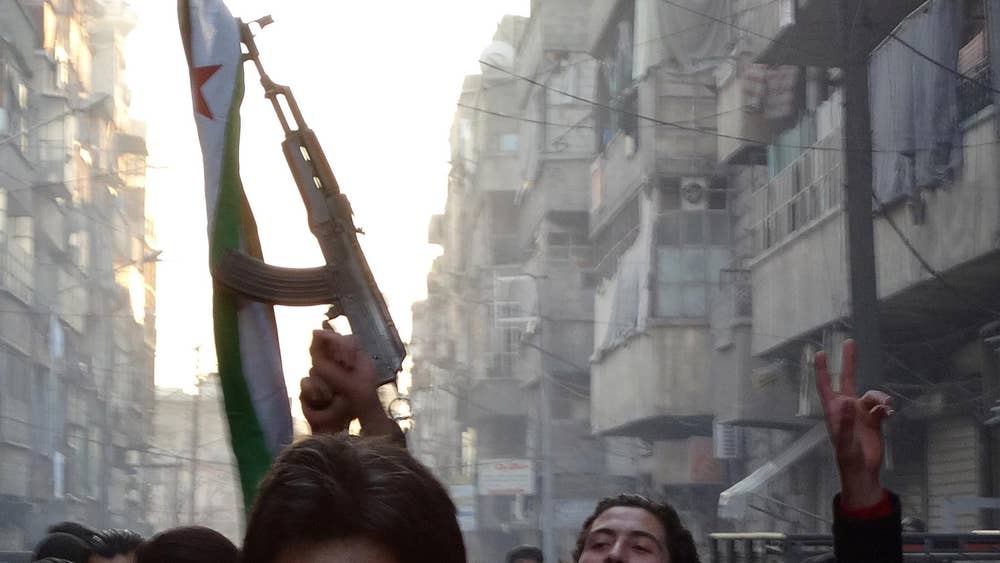
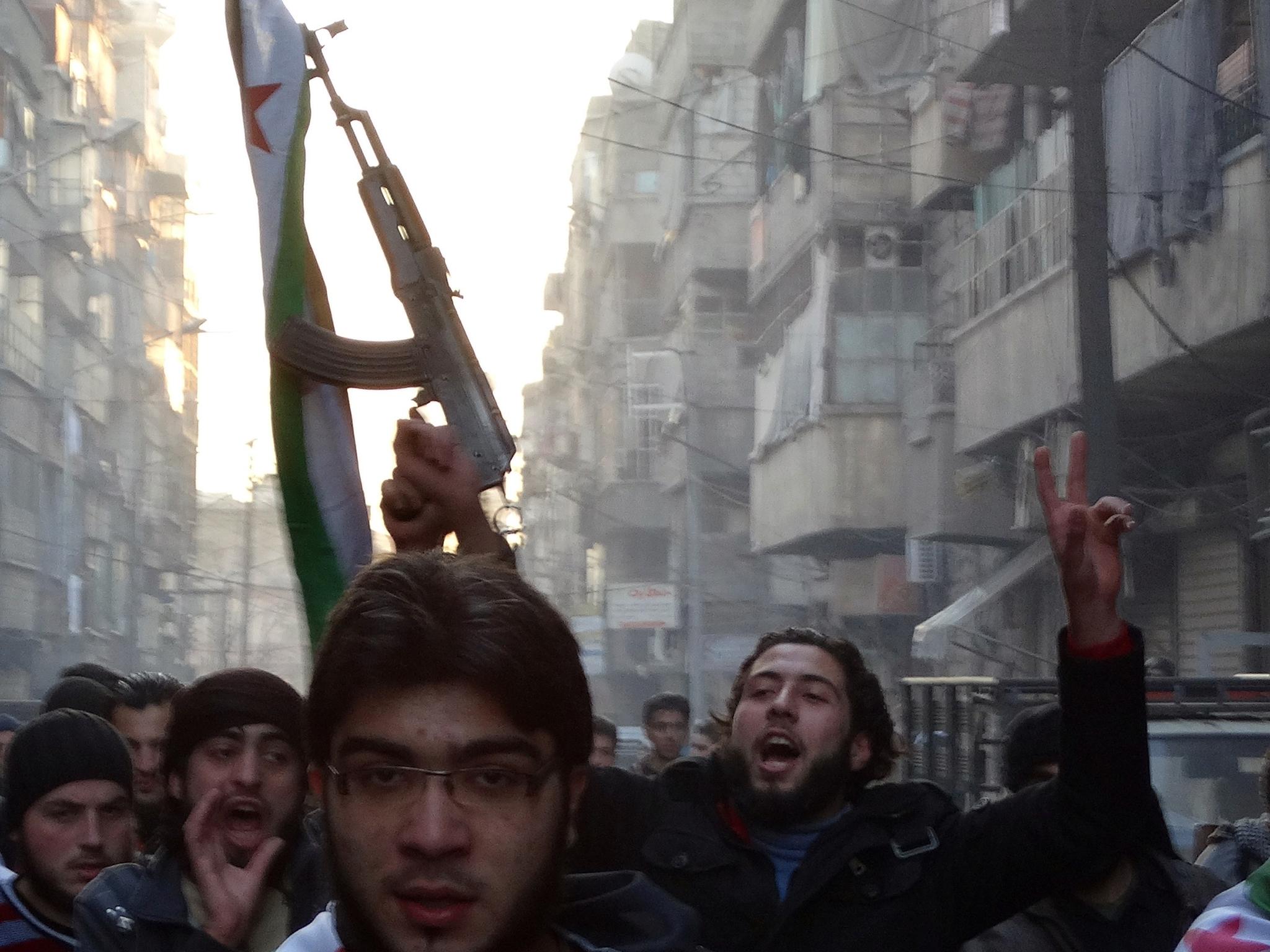
1/19
ISIS began as a group by the merging of extremist organisations ISI and al-Nusra in 2013.
Following clashes, Syrian rebels captured the ISIS headquarters in Aleppo in January 2014 (pictured)
AFP/Getty
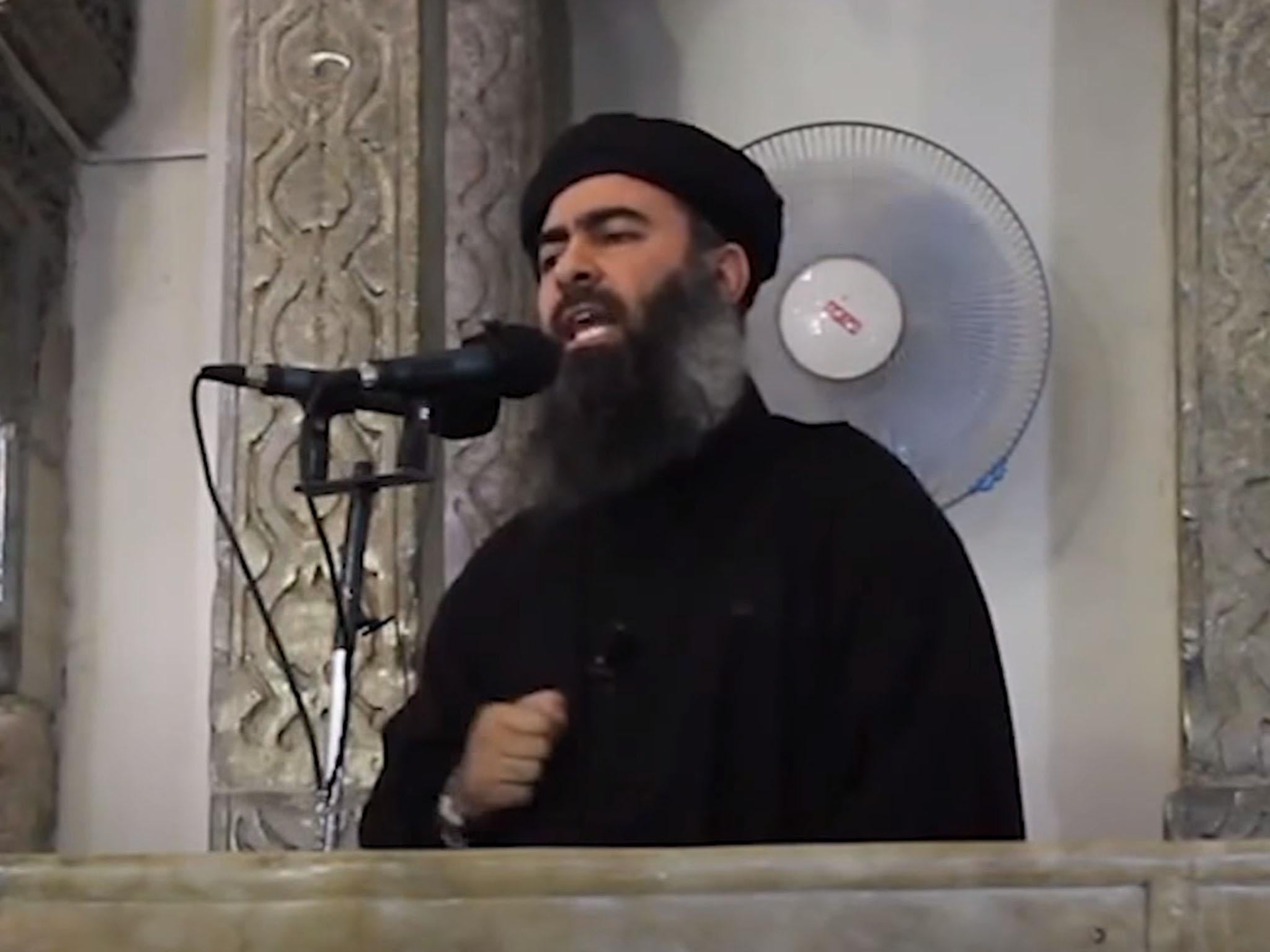
2/19
Abu Bakr Al-Baghdadi declared the creation of a caliphate in Mosul on 27 June 2014
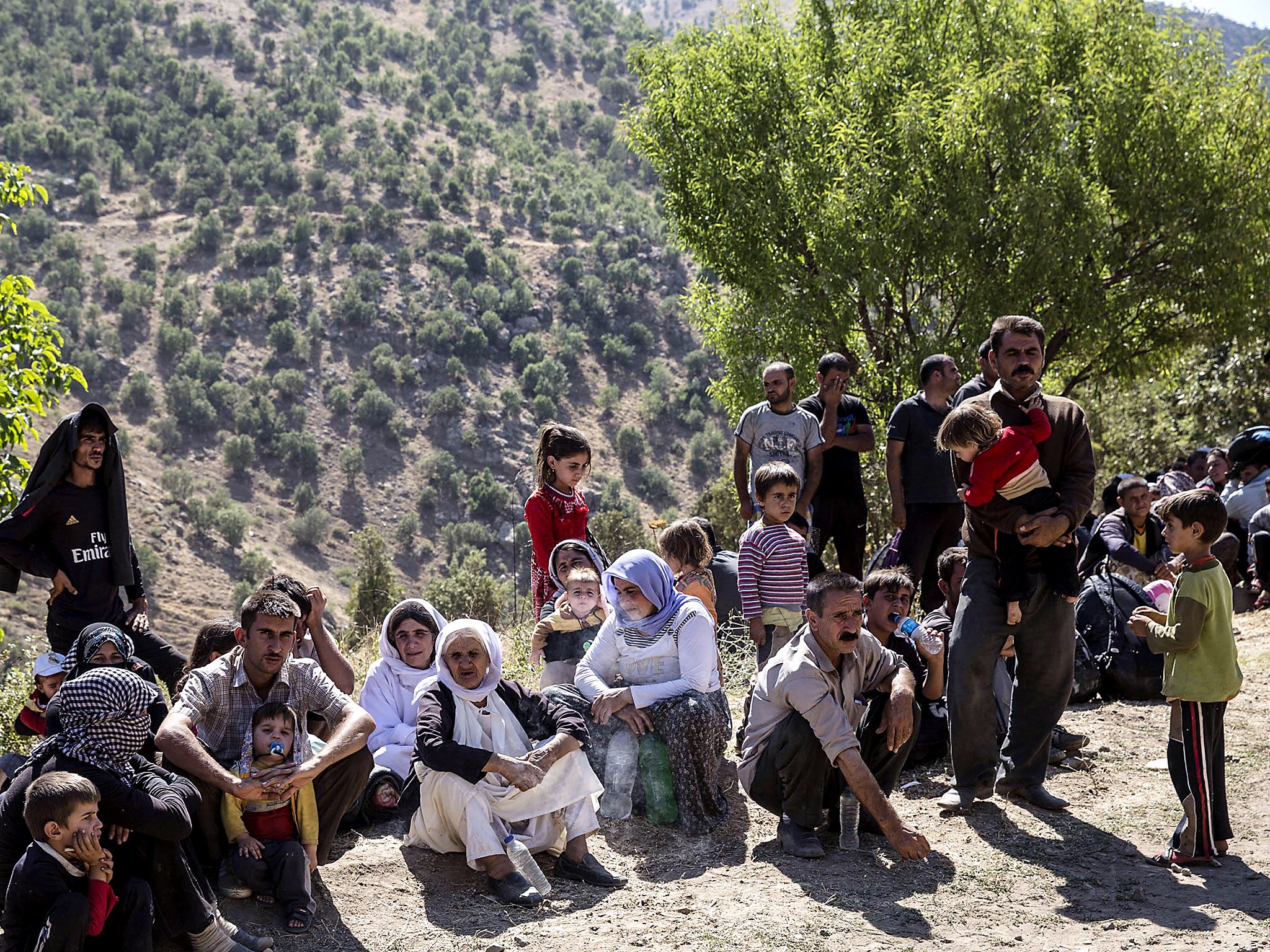
3/19
Isis conquered the Kurdish towns of Sinjar and Zumar in August 2014, forcing thousands of civilians to flee their homes. Pictured are a group of Yazidi Kurds who have fled
Rex
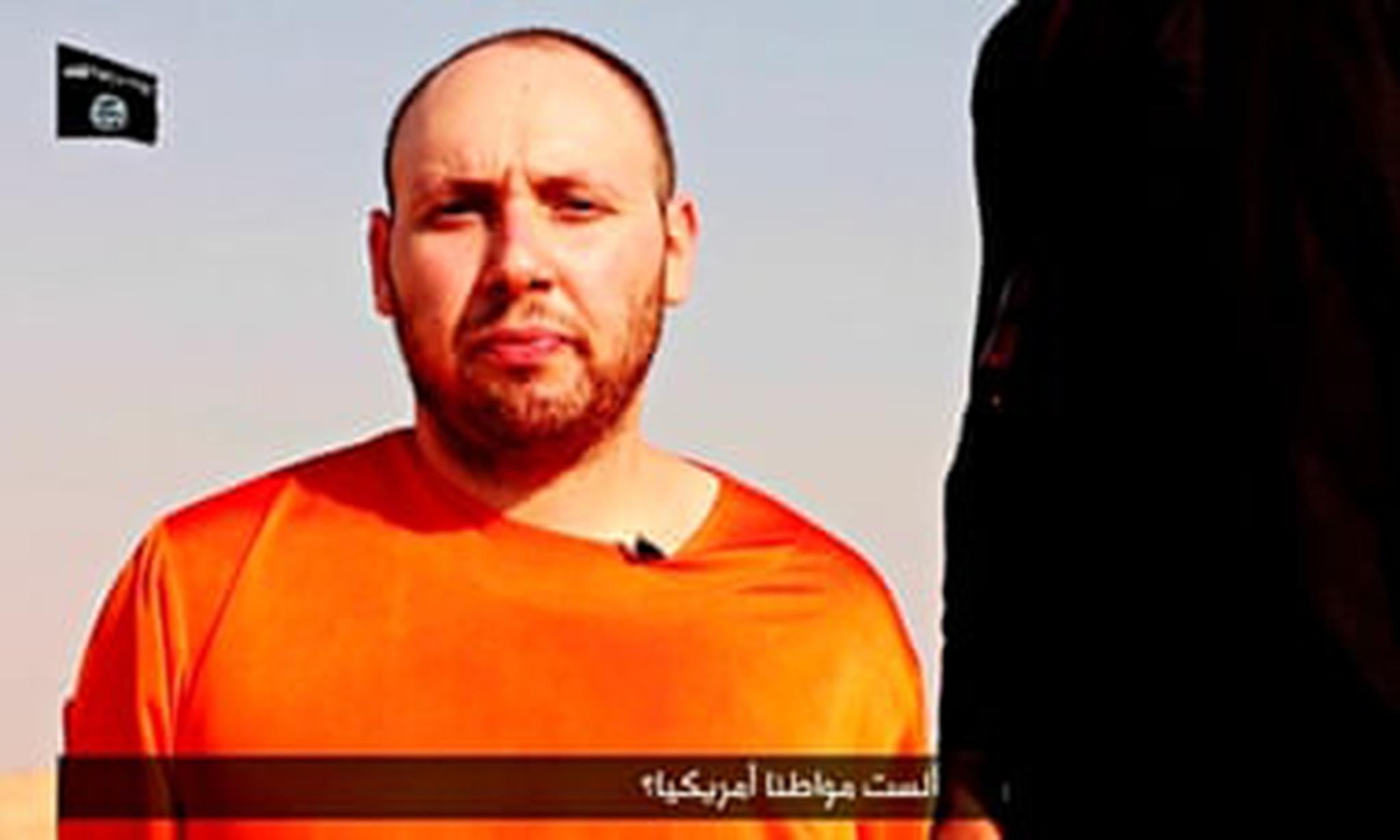
4/19
On September 2 2014 Isis released a video depicting the beheading of US journalist Steven Sotloff. On September 13 they released another video showing the execution of British aid worker David Haines
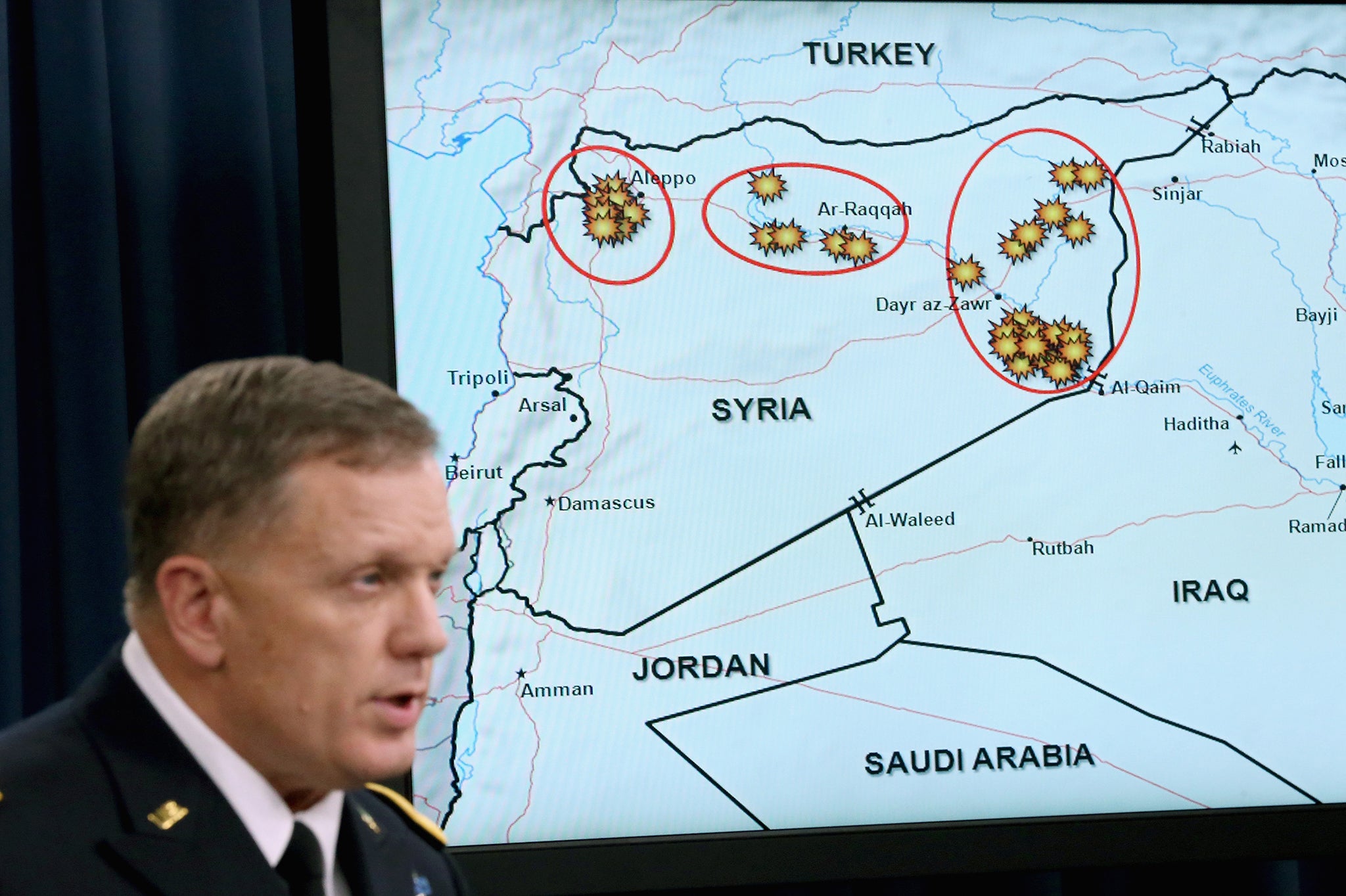
5/19
The US launched its first airstrikes against Isis in Syria on 23 September 2014. Here Lt Gen William C Mayville Jnr speaks about the bombing campaign in the wake of the first strikes
Getty
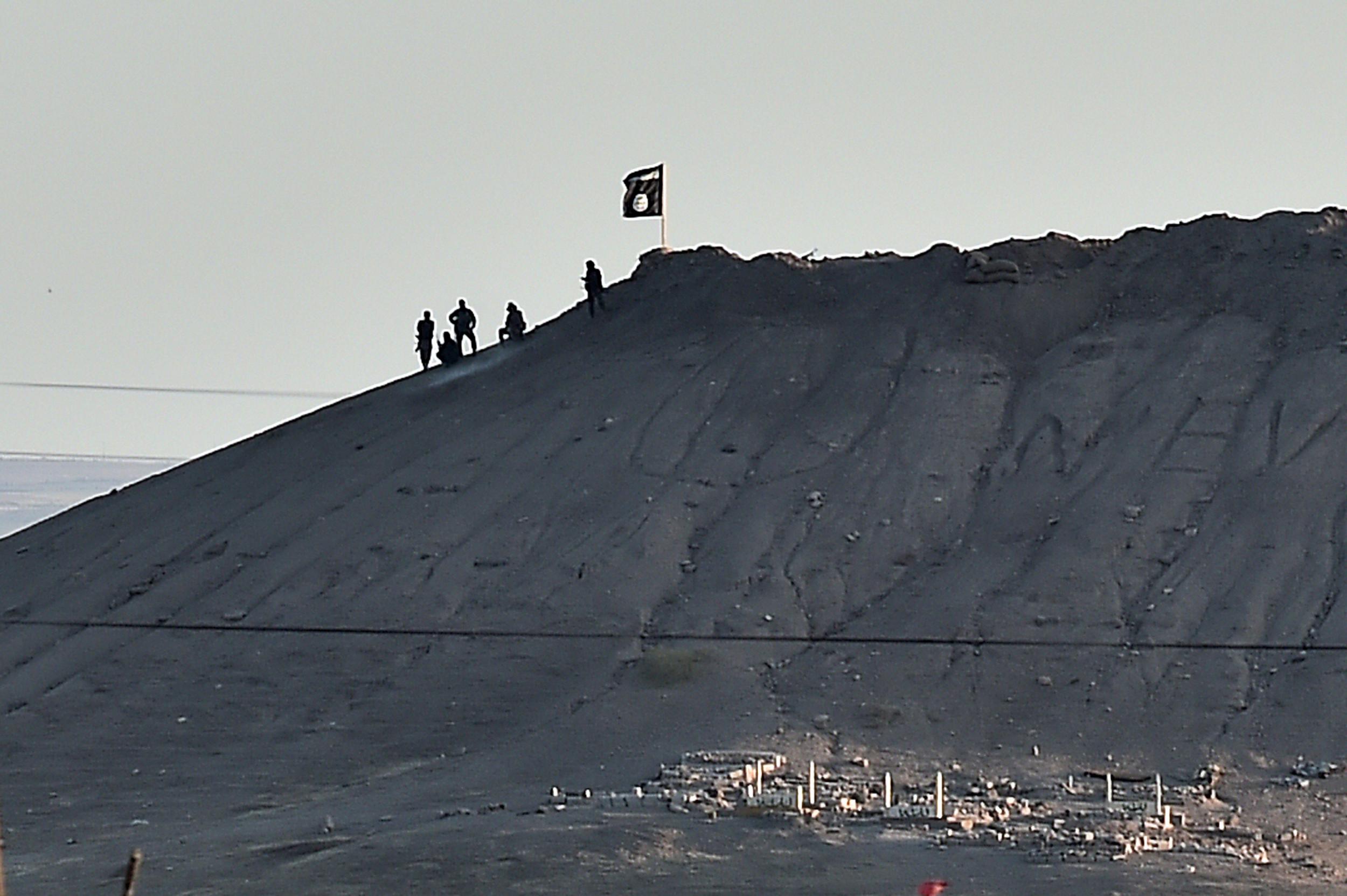
6/19
Isis militants sit atop a hill planted with their flag in the Syrian town of Kobani on 6 October 2014. They had been advancing on Kobani since mid-September and by now was in control of the city’s entrance and exit points
AFP/Getty
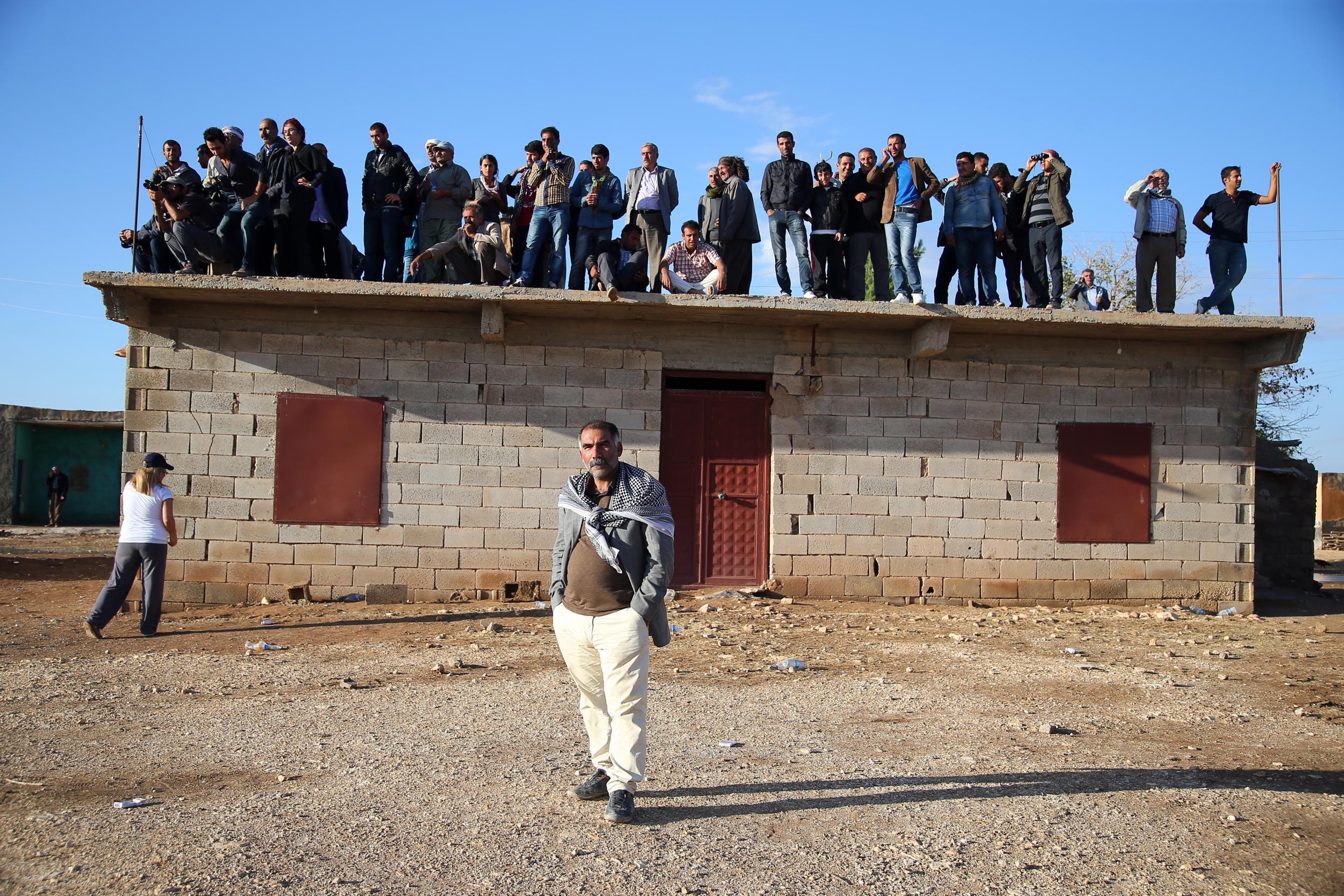
7/19
Residents of the border village of Alizar keep guard day and night as they wait in fear of mortar fire from Isis who have occupied the nearby city of Kobani
Getty
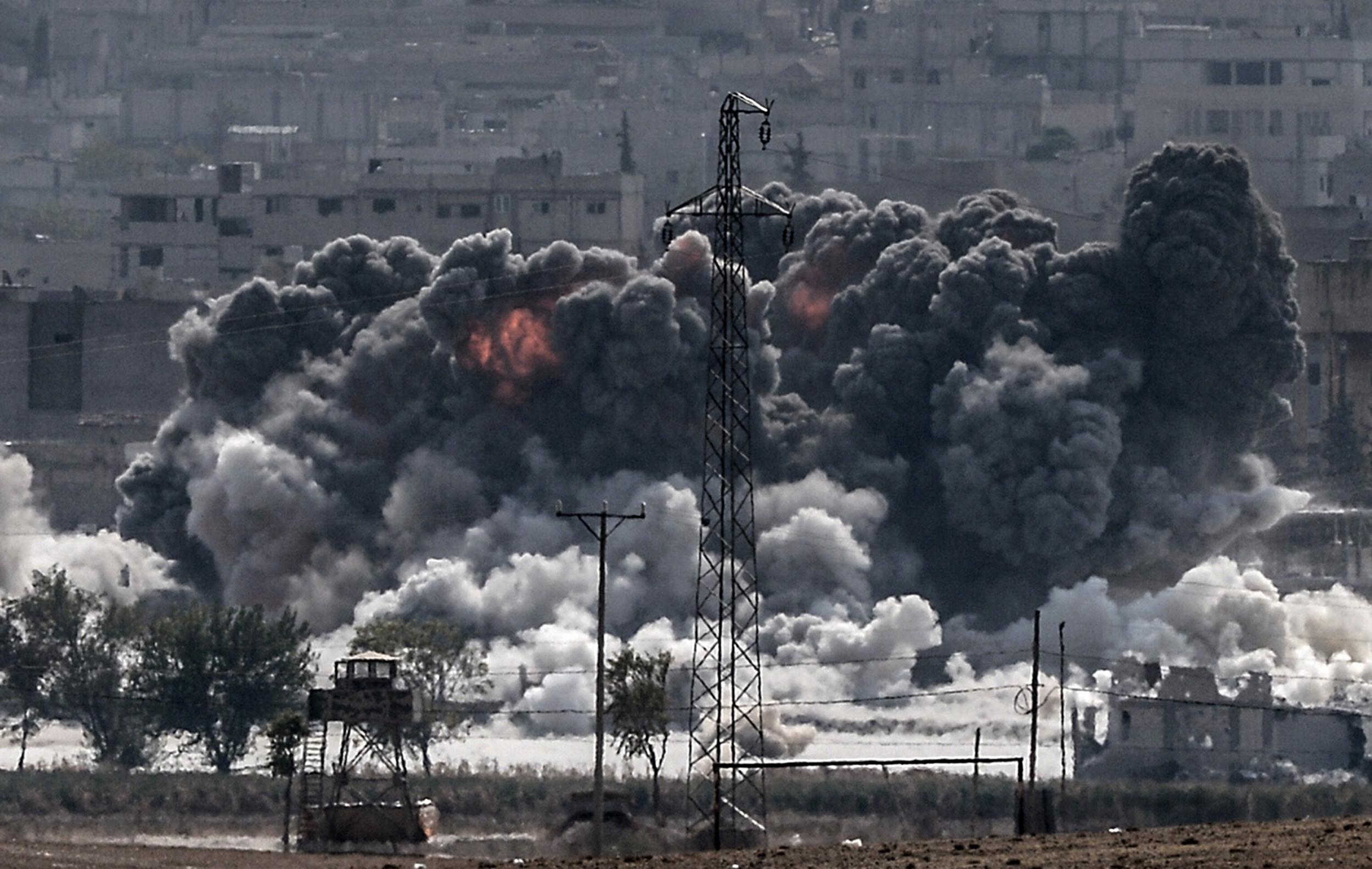
8/19
Smoke rises following a US airstrike on Kobani, 28 October 2014
AFP/Getty
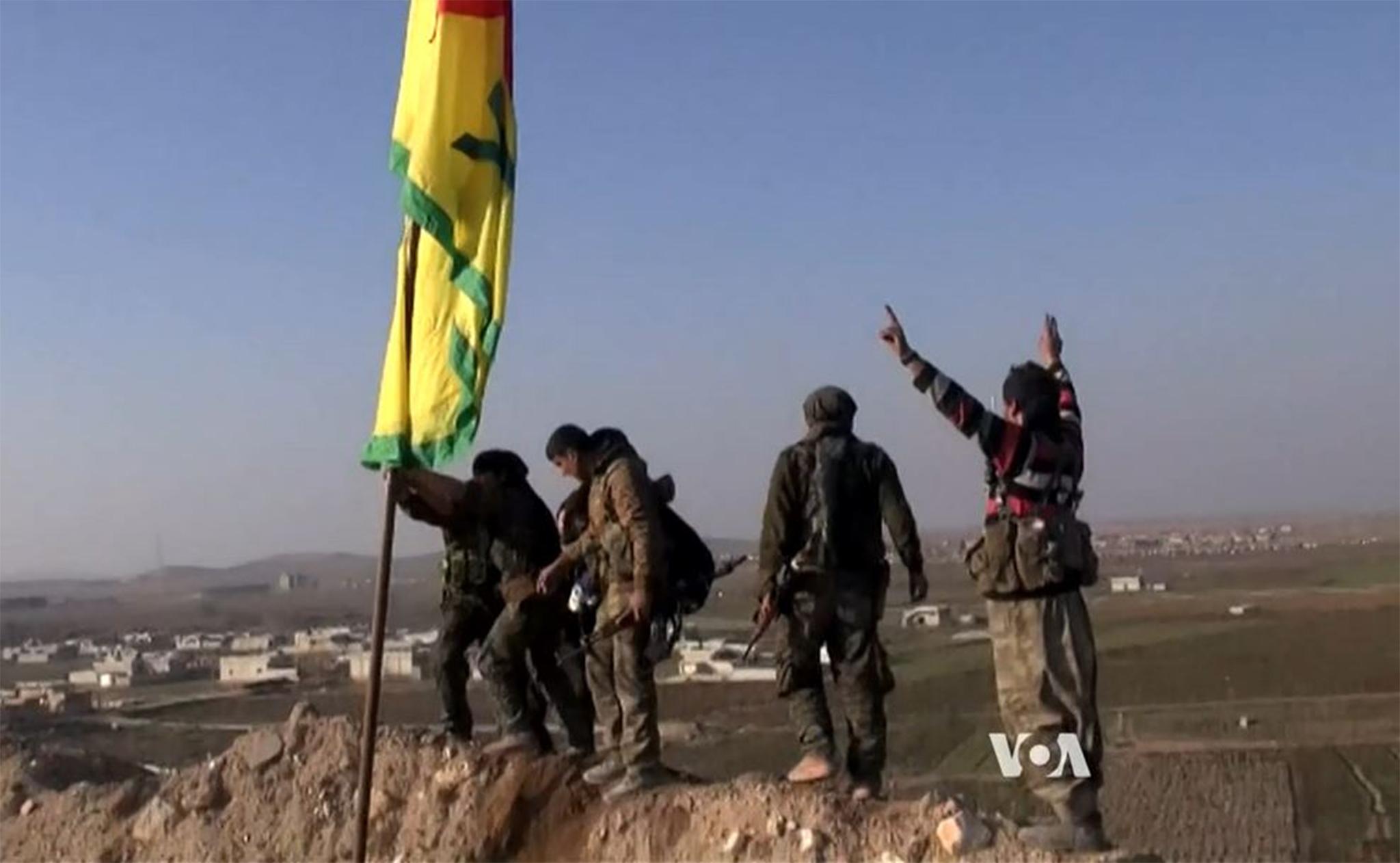
9/19
YPG fighters raise a flag as they reclaim Kobani on 26 January 2015
VOA
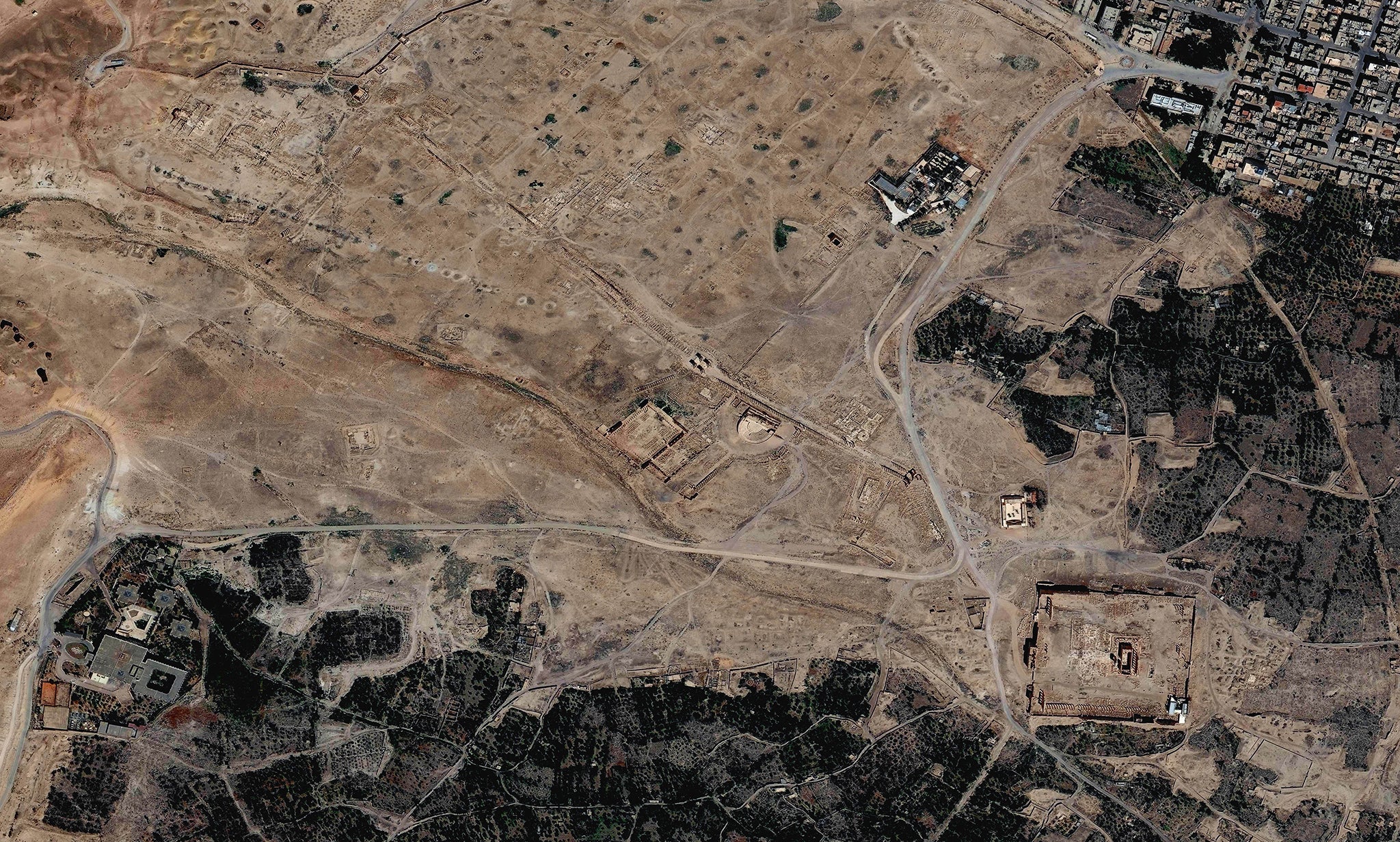
10/19
Isis seized the ancient Syrian city of Palmyra on 20 May 2015. This image show the city from above days after its capture by Isis
Getty
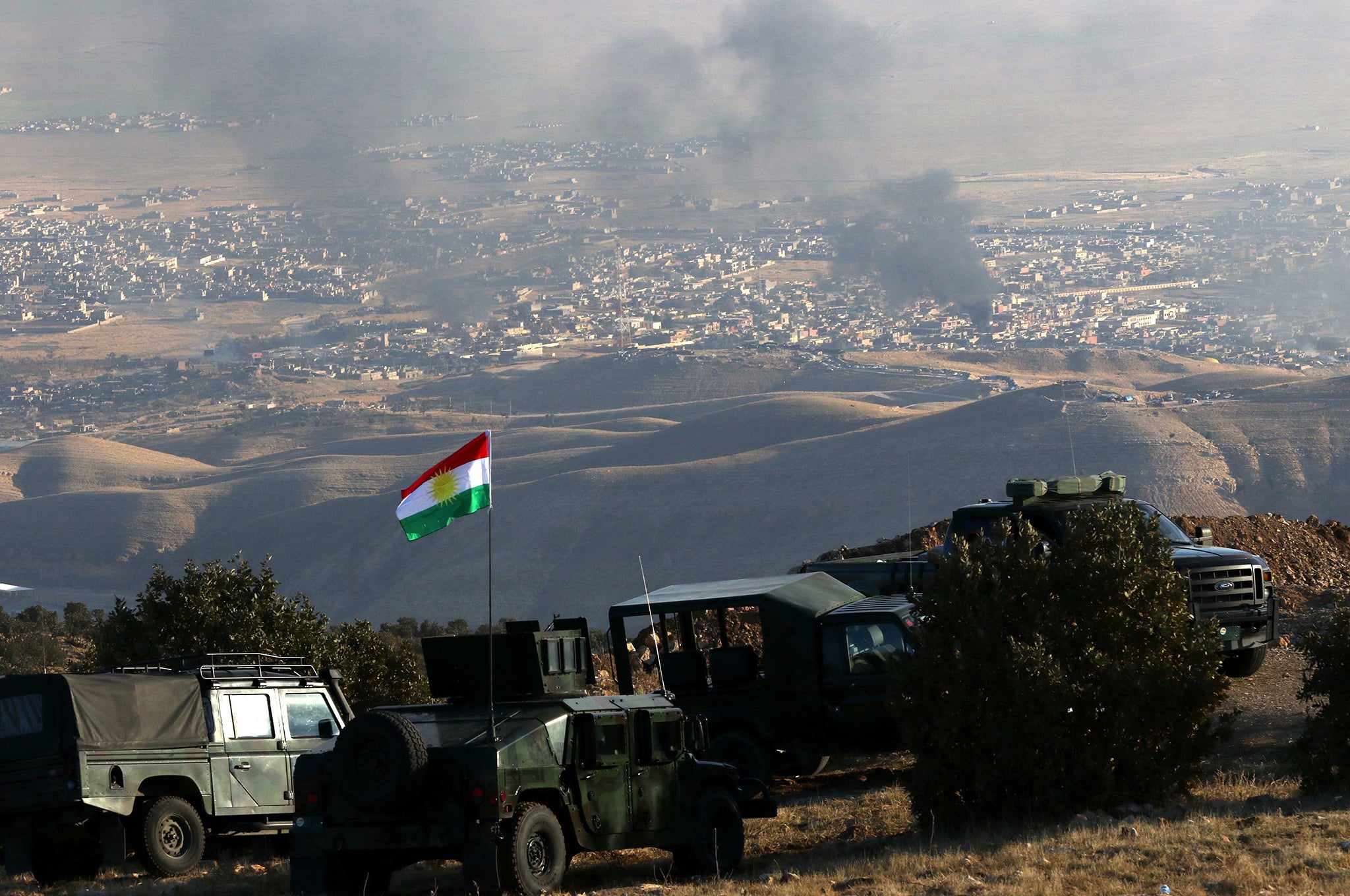
11/19
Kurdish forces are stationed on a hill above the town of Sinjar as smoke rises following US airstrikes on 12 November 2015
AFP/Getty
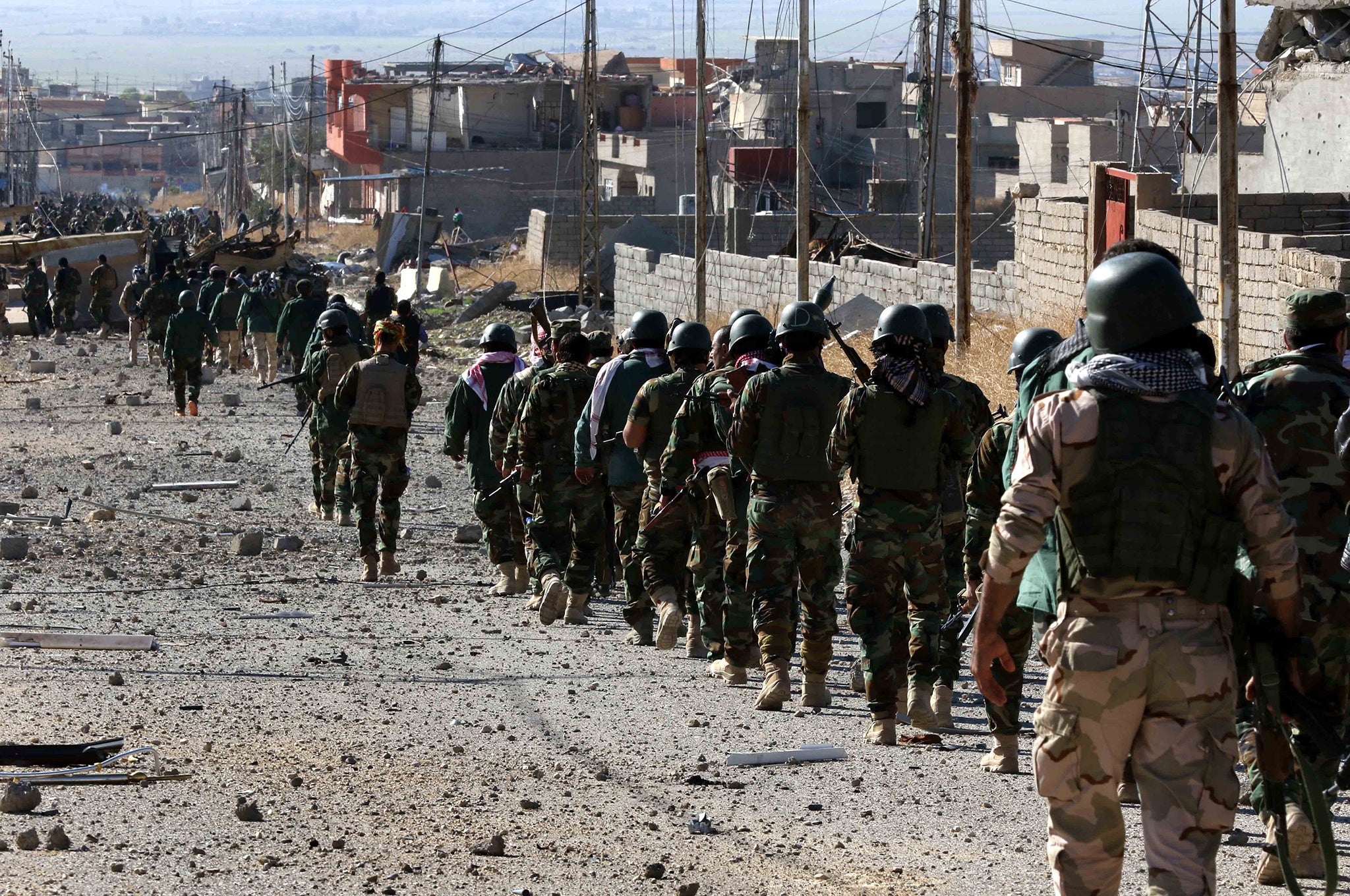
12/19
Kurdish forces enter Sinjar after seizing it from Isis control on 13 November 2015
AFP/Getty
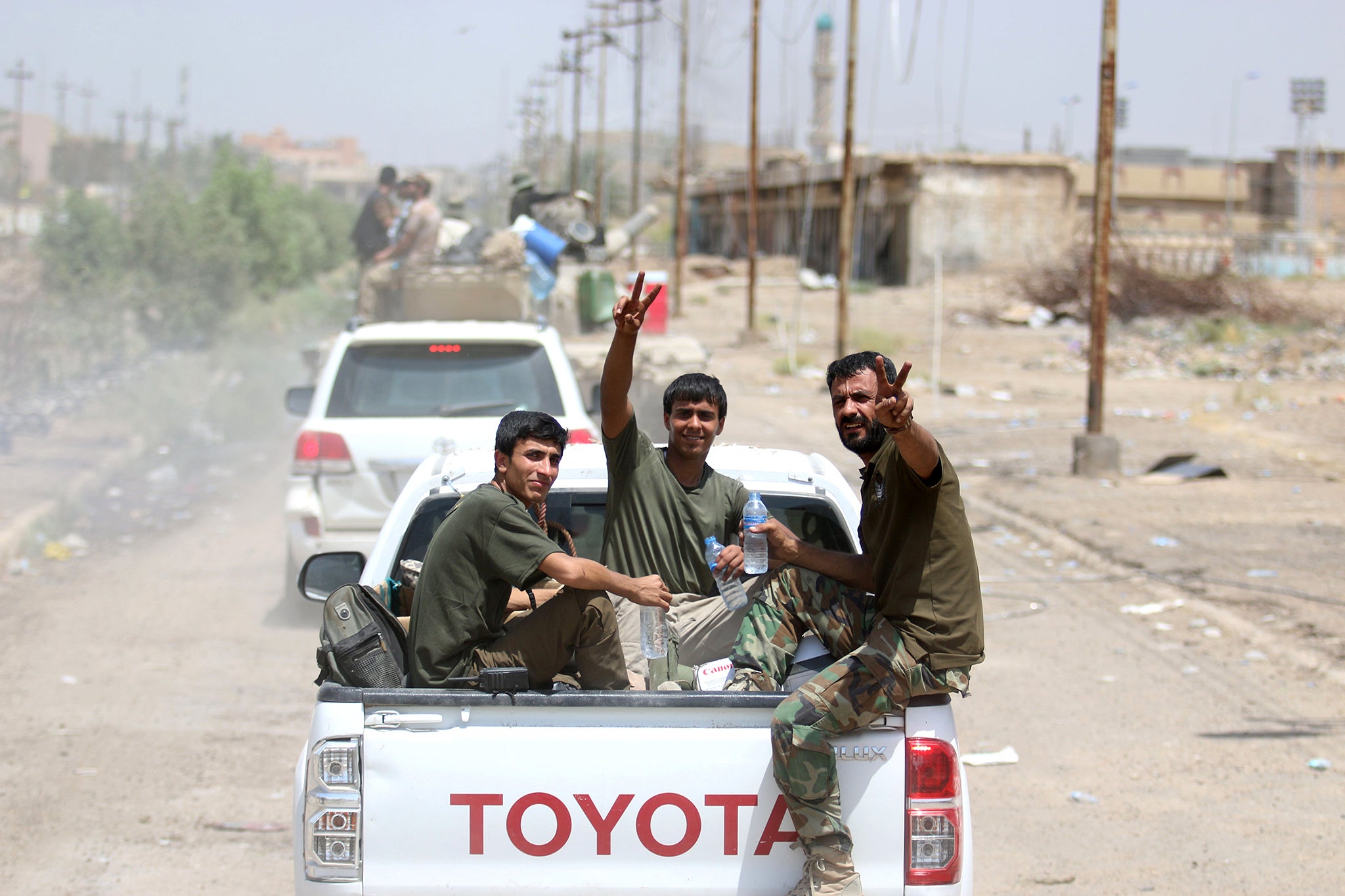
13/19
Iraqi government forces make the victory sign as they retake the city of Fallujah from ISIS on 26 June 2016
Getty
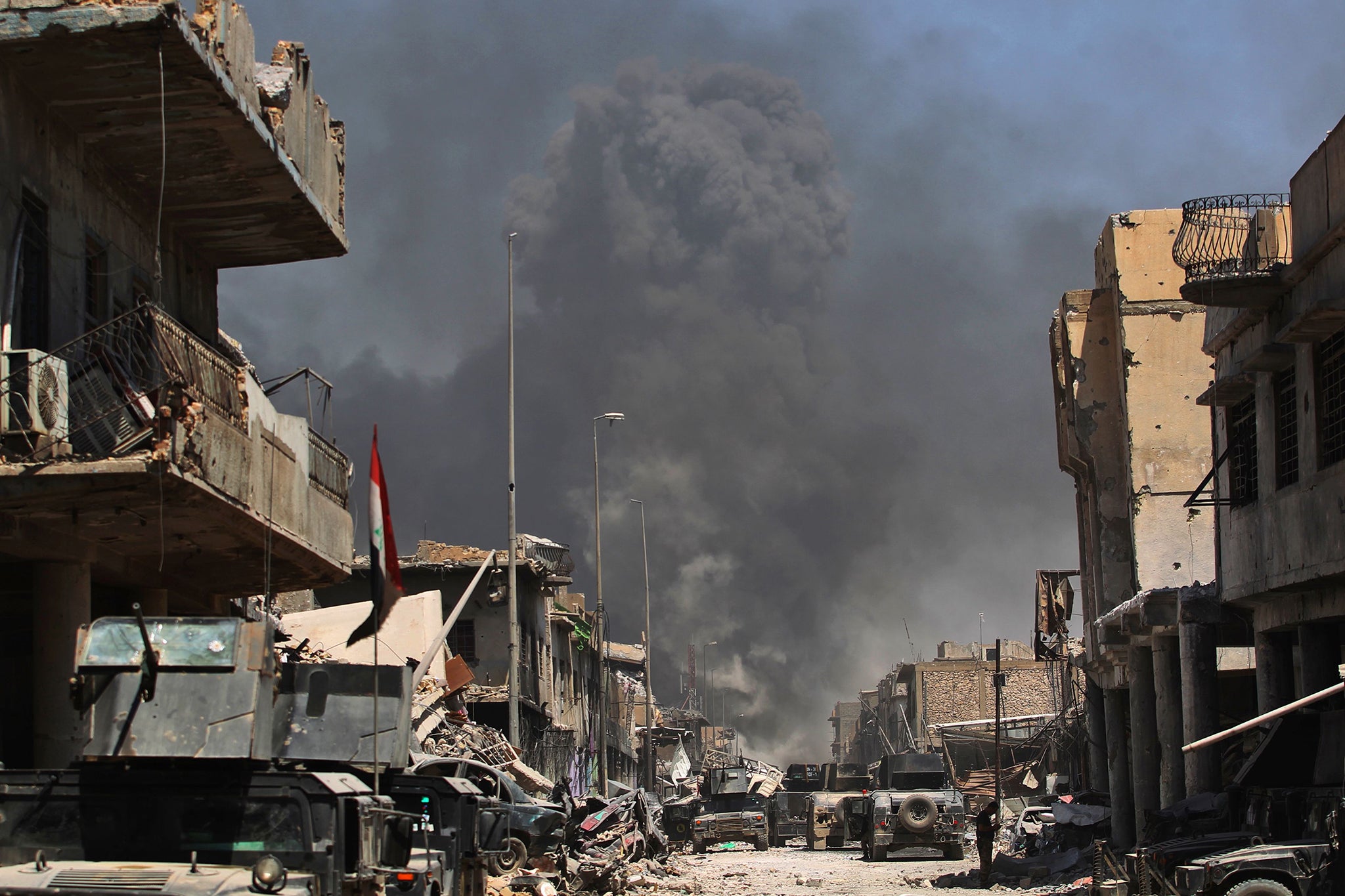
14/19
Iraqi forces battle with Isis for the city of Mosul on 30 June 2017
AFP/Getty
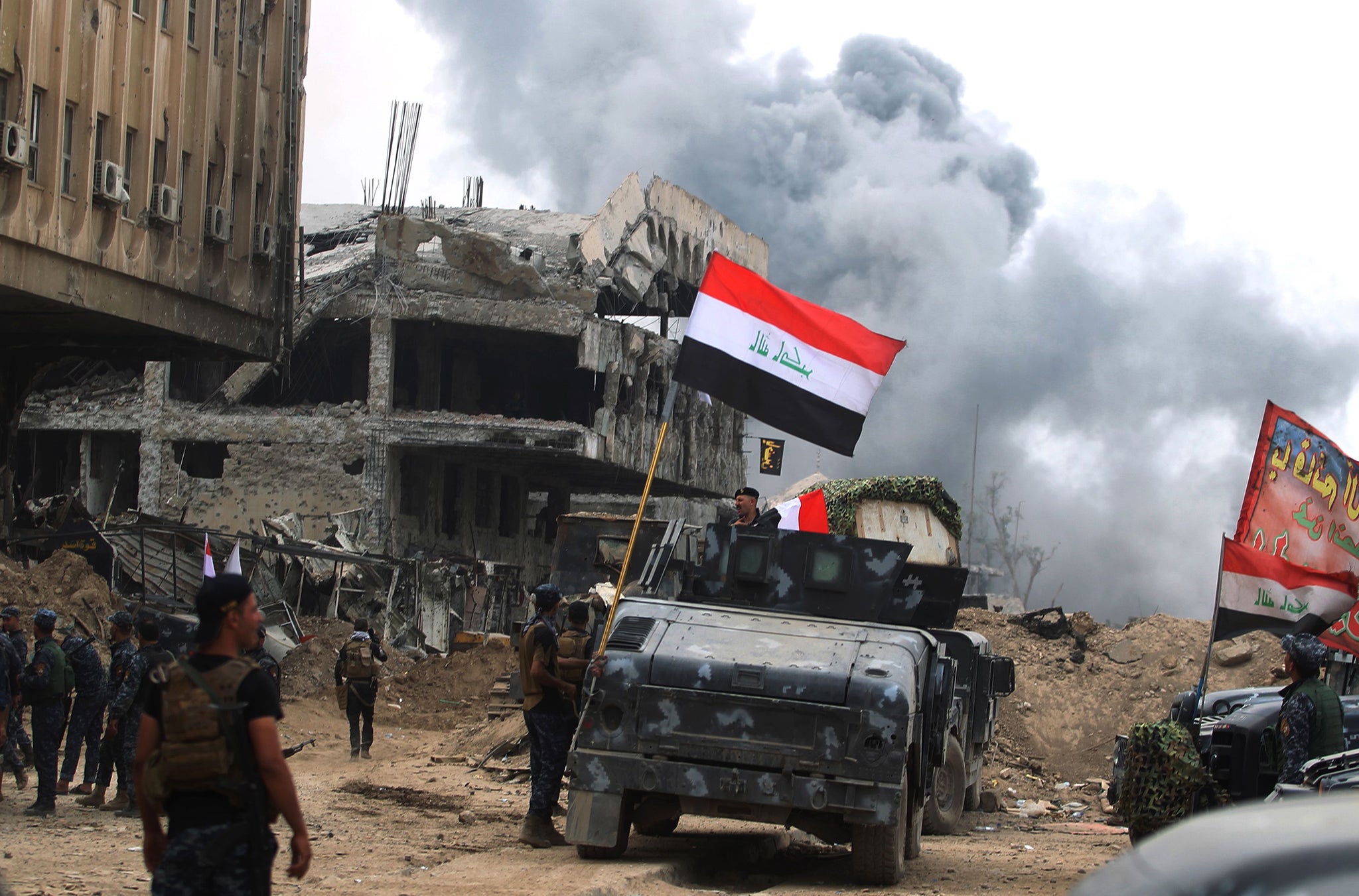
15/19
Members of the Iraqi federal police raise flags in Mosul on 8 July 2017. On the following day, Iraqi prime minister Haider Al Abadi declares victory over Isis in Mosul
Getty
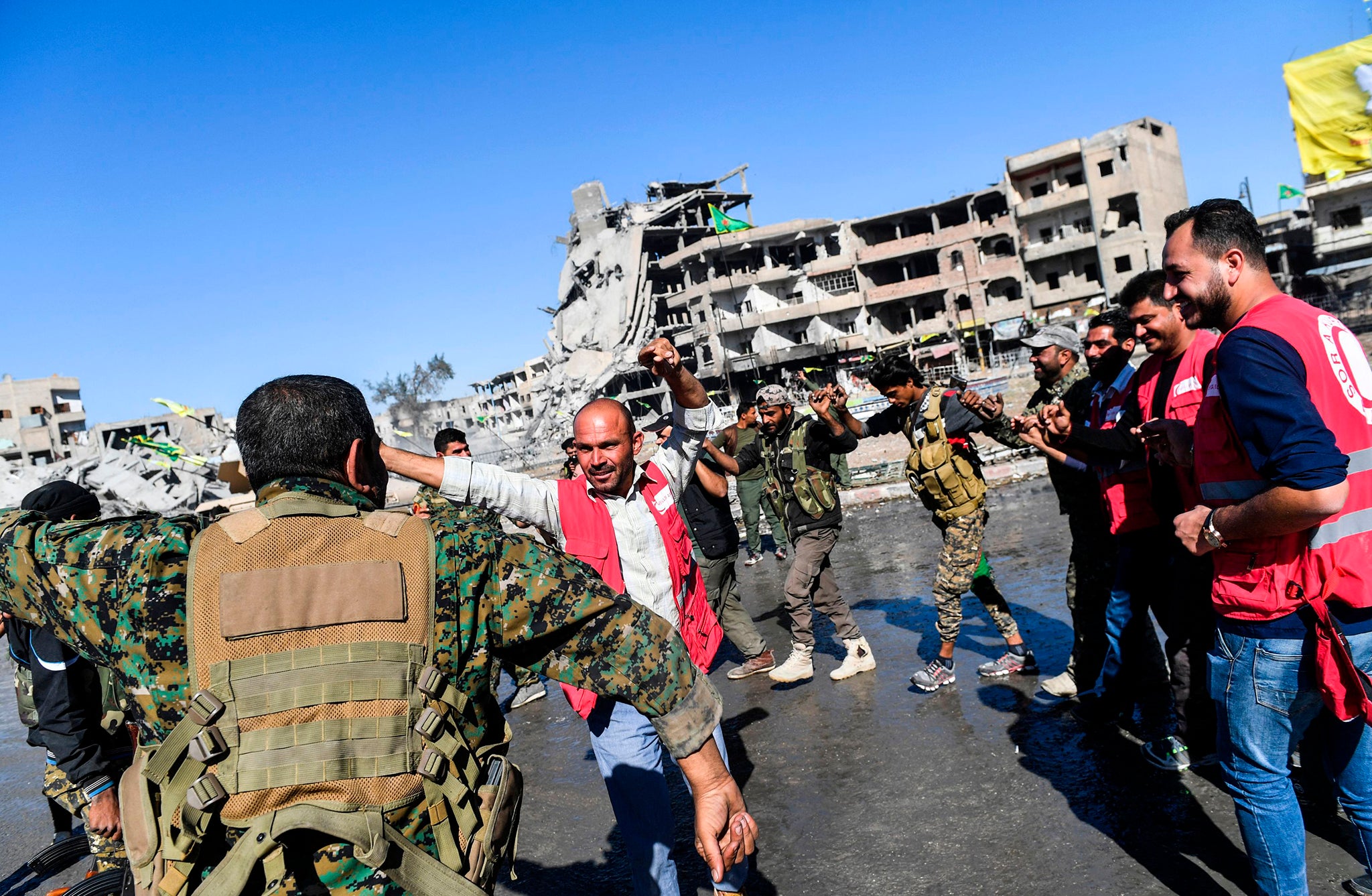
16/19
Members of Syrian Democratic Forces celebrate in Al-Naim square after taking back the city of Raqqa from Isis. US-backed Syrian forces declare victory over Isis in Raqqa on 20 October 2017 after a four-month long campaign
Getty
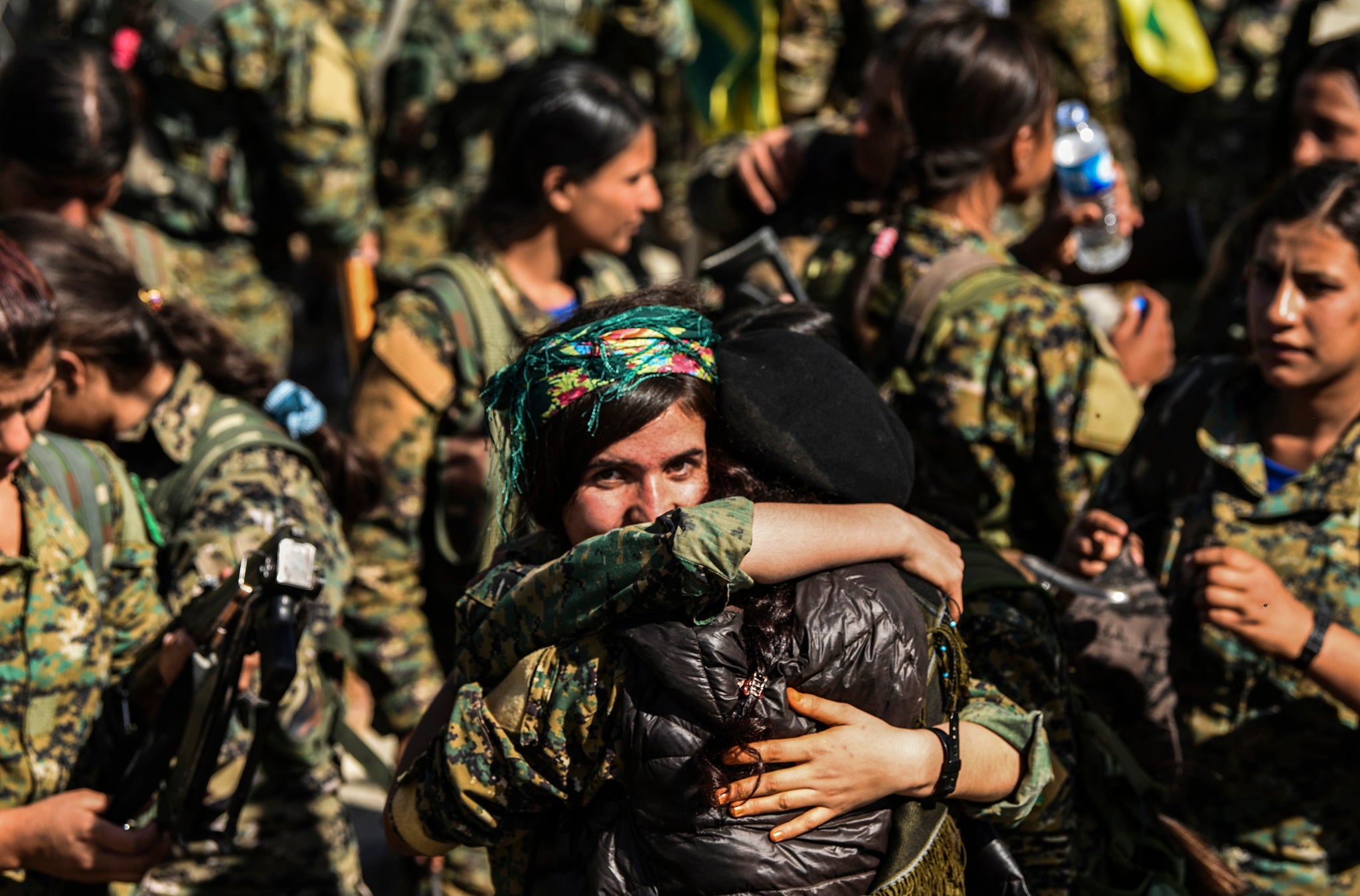
17/19
Female fighters of the Syrian Democratic Forces celebrate in Al-Naim Square after taking back the city of Raqqa from Isis. US-backed Syrian forces declare victory over Isis in Raqqa on 20 October 2017 after a four-month long campaign
AFP/Getty
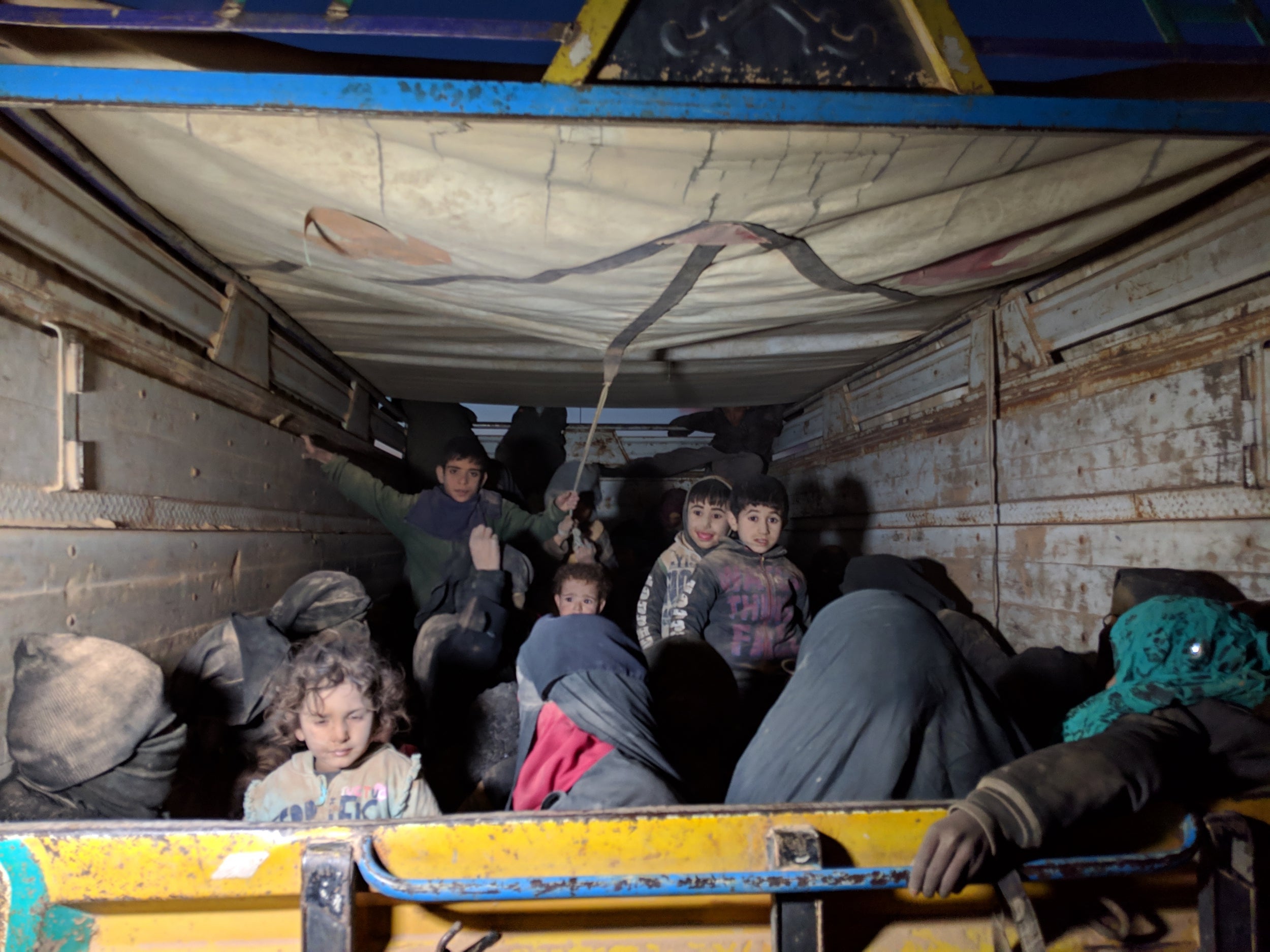
18/19
Trucks full of women and children arrive from the last Isis-held areas in Deir ez-Zor, Syria in January 2019
They were among the last civilians to be living in the ISIS caliphate, by this time reduced to just two small villages in Syria’s Deir ez-Zor
Richard Hall/The Independent
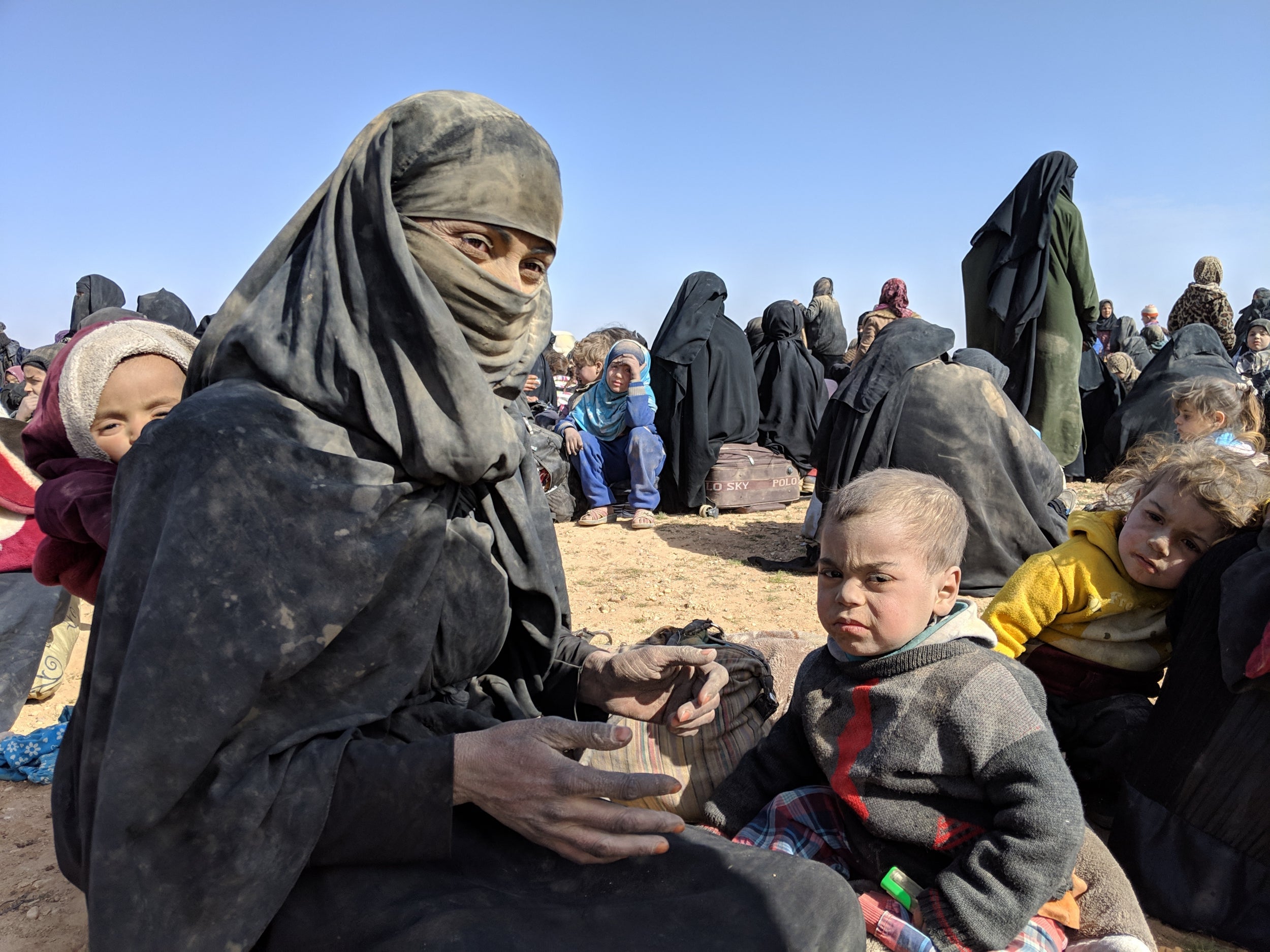
19/19
Zikia Ibrahim, 28, with her two-year-old son and 8-month-old daughter, after fleeing the Isis caliphate, on Saturday 26 January 2019
Richard Hall/The Independent

1/19
ISIS began as a group by the merging of extremist organisations ISI and al-Nusra in 2013.
Following clashes, Syrian rebels captured the ISIS headquarters in Aleppo in January 2014 (pictured)
AFP/Getty

2/19
Abu Bakr Al-Baghdadi declared the creation of a caliphate in Mosul on 27 June 2014

3/19
Isis conquered the Kurdish towns of Sinjar and Zumar in August 2014, forcing thousands of civilians to flee their homes. Pictured are a group of Yazidi Kurds who have fled
Rex

4/19
On September 2 2014 Isis released a video depicting the beheading of US journalist Steven Sotloff. On September 13 they released another video showing the execution of British aid worker David Haines

5/19
The US launched its first airstrikes against Isis in Syria on 23 September 2014. Here Lt Gen William C Mayville Jnr speaks about the bombing campaign in the wake of the first strikes
Getty

6/19
Isis militants sit atop a hill planted with their flag in the Syrian town of Kobani on 6 October 2014. They had been advancing on Kobani since mid-September and by now was in control of the city’s entrance and exit points
AFP/Getty

7/19
Residents of the border village of Alizar keep guard day and night as they wait in fear of mortar fire from Isis who have occupied the nearby city of Kobani
Getty

8/19
Smoke rises following a US airstrike on Kobani, 28 October 2014
AFP/Getty

9/19
YPG fighters raise a flag as they reclaim Kobani on 26 January 2015
VOA

10/19
Isis seized the ancient Syrian city of Palmyra on 20 May 2015. This image show the city from above days after its capture by Isis
Getty

11/19
Kurdish forces are stationed on a hill above the town of Sinjar as smoke rises following US airstrikes on 12 November 2015
AFP/Getty

12/19
Kurdish forces enter Sinjar after seizing it from Isis control on 13 November 2015
AFP/Getty

13/19
Iraqi government forces make the victory sign as they retake the city of Fallujah from ISIS on 26 June 2016
Getty

14/19
Iraqi forces battle with Isis for the city of Mosul on 30 June 2017
AFP/Getty

15/19
Members of the Iraqi federal police raise flags in Mosul on 8 July 2017. On the following day, Iraqi prime minister Haider Al Abadi declares victory over Isis in Mosul
Getty

16/19
Members of Syrian Democratic Forces celebrate in Al-Naim square after taking back the city of Raqqa from Isis. US-backed Syrian forces declare victory over Isis in Raqqa on 20 October 2017 after a four-month long campaign
Getty

17/19
Female fighters of the Syrian Democratic Forces celebrate in Al-Naim Square after taking back the city of Raqqa from Isis. US-backed Syrian forces declare victory over Isis in Raqqa on 20 October 2017 after a four-month long campaign
AFP/Getty

18/19
Trucks full of women and children arrive from the last Isis-held areas in Deir ez-Zor, Syria in January 2019
They were among the last civilians to be living in the ISIS caliphate, by this time reduced to just two small villages in Syria’s Deir ez-Zor
Richard Hall/The Independent

19/19
Zikia Ibrahim, 28, with her two-year-old son and 8-month-old daughter, after fleeing the Isis caliphate, on Saturday 26 January 2019
Richard Hall/The Independent
Ismail is believed to have been wounded while fighting in Syria before being given a role as an Isis police officer. The source said the Briton was interrogated and killed in Raqqa, but the method of execution is not known.
It comes as the first British Isis fighters are identified after the fall of Baghouz, the group’s last stronghold, earlier this month.
Hamza Parvez, who is now in Kurdish custody in northern Syria, told the BBC on Sunday that he spent five years as a jihadist recruit.
Expressing some regret, the former police cadet from west London said: “Most of the foreign fighters … when you do talk to them, the first thing they’ll say to you is that, ‘We would have never ever come if we had known the realities of Isis’.”
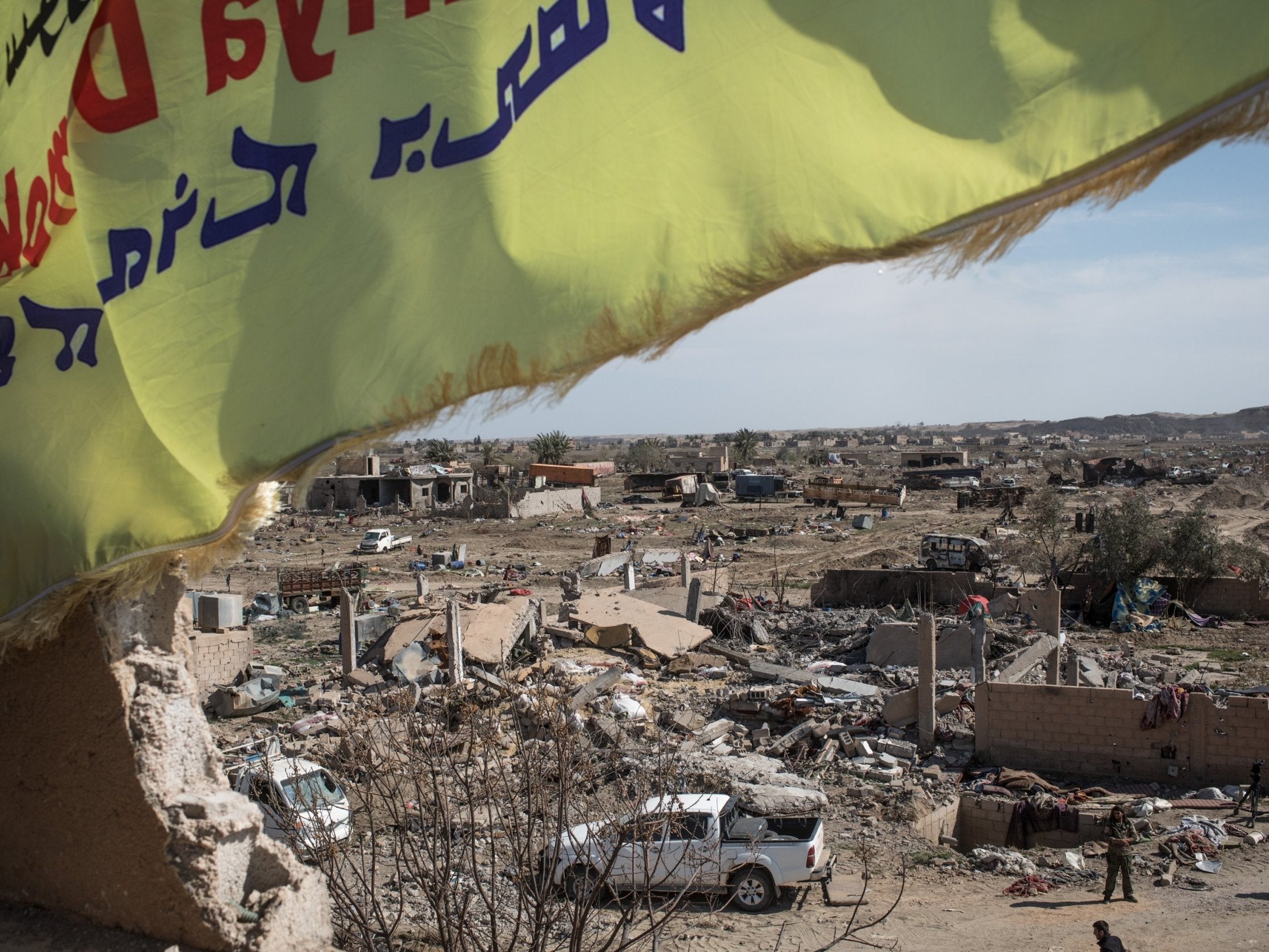
A separate report on Sunday claimed that MI6 intelligence officers are choosing not to interrogate British Isis fighters captured and detained in northern Syria.
The agency was worried about the legal risks involved in speaking to them, according to The Sunday Telegraph.
The concerns are believed to relate to the possibility that any detainee interviewed by British officials could have a stronger case for returning to the UK.
MI6 is also thought to fear legal liability if any detainees claim to have been tortured while held by Syrian Democratic Forces (SDF) in Syria.
Human rights lawyer Clive Stafford Smith said: “How can Sajid Javid tell the country he is doing everything to keep the country safe while MI6 says it does not even seek evidence from people who know the most about (Isis) from having lived in their midst?”
We’ll tell you what’s true. You can form your own view.
At The Independent, no one tells us what to write. That’s why, in an era of political lies and Brexit bias, more readers are turning to an independent source. Subscribe from just 15p a day for extra exclusives, events and ebooks – all with no ads.
Original Source
